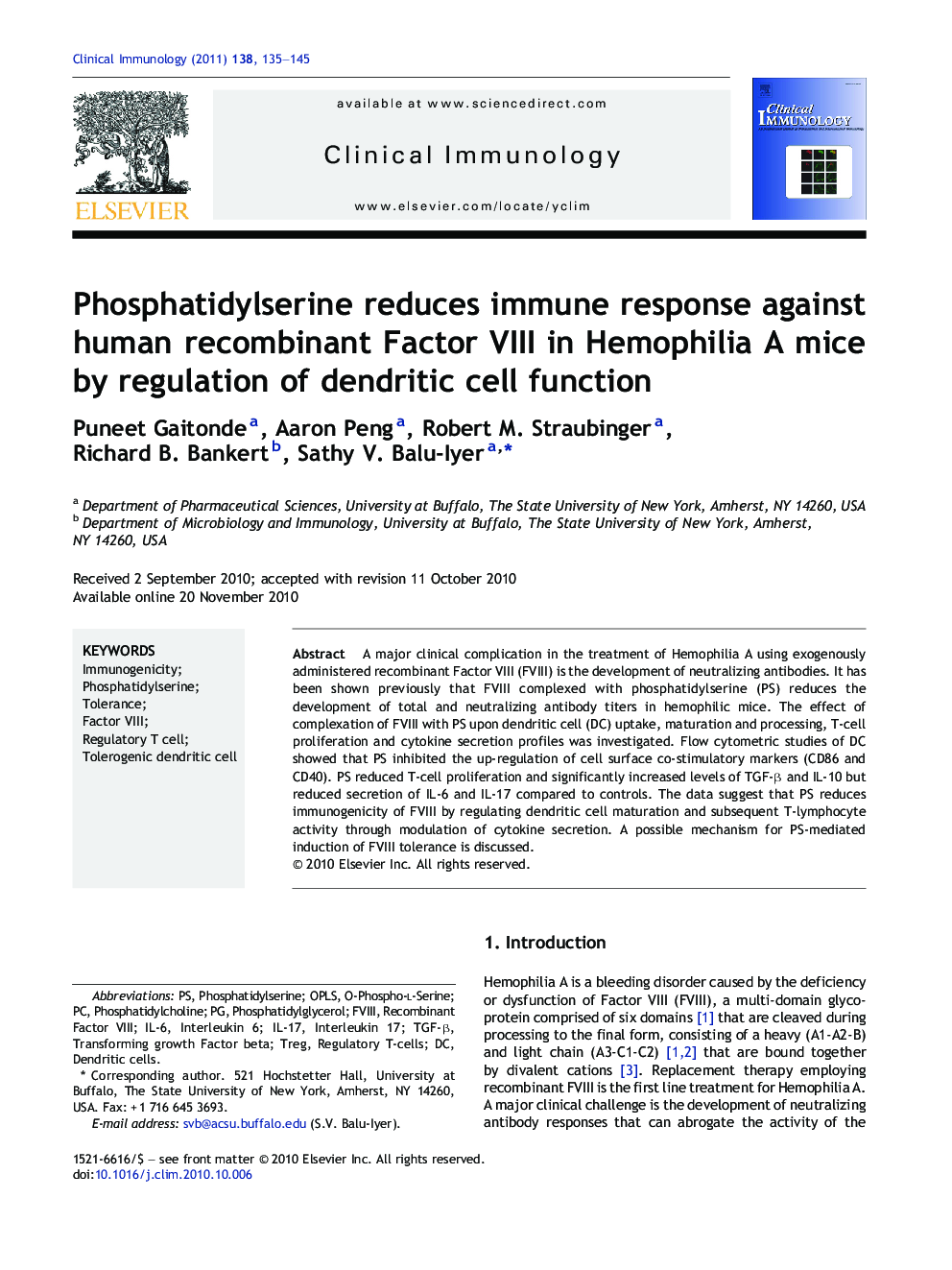| Article ID | Journal | Published Year | Pages | File Type |
|---|---|---|---|---|
| 3257358 | Clinical Immunology | 2011 | 11 Pages |
A major clinical complication in the treatment of Hemophilia A using exogenously administered recombinant Factor VIII (FVIII) is the development of neutralizing antibodies. It has been shown previously that FVIII complexed with phosphatidylserine (PS) reduces the development of total and neutralizing antibody titers in hemophilic mice. The effect of complexation of FVIII with PS upon dendritic cell (DC) uptake, maturation and processing, T-cell proliferation and cytokine secretion profiles was investigated. Flow cytometric studies of DC showed that PS inhibited the up-regulation of cell surface co-stimulatory markers (CD86 and CD40). PS reduced T-cell proliferation and significantly increased levels of TGF-β and IL-10 but reduced secretion of IL-6 and IL-17 compared to controls. The data suggest that PS reduces immunogenicity of FVIII by regulating dendritic cell maturation and subsequent T-lymphocyte activity through modulation of cytokine secretion. A possible mechanism for PS-mediated induction of FVIII tolerance is discussed.
